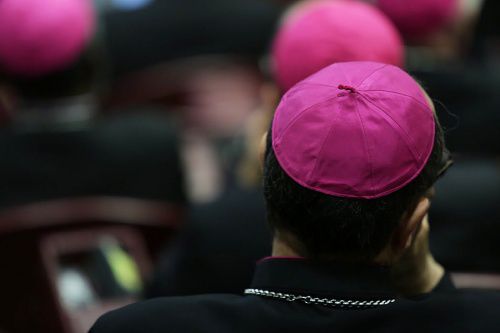Violence, incest and sexual abuse within the family were among the issues addressed by synod fathers in their most recent talks, as well as the Church's role in bringing light to difficult situations. One of the synod bishops specifically referred to “the martyrdom of silence in many families where incest has taken place.” He said that in the midst of the horror of such situations, the Church “has to become the voice and give voice to the martyrs, those who have suffered the terrible evil of incest.” The contributions of synod fathers during both yesterday’s evening session as well as today’s morning session were summarized in an Oct. 16 press briefing, led by Vatican spokesman Fr. Federico Lombardi. Both the English and Spanish language assistants to the Holy See press office — Fr. Thomas Rosica and Fr. Manuel Dorantes — were there to summarize the interventions in their respective languages as well as Fr. Bernard Hagenkord S.J. in Italian, and Mrs. Romilda Ferrauto in French. After 30 of the synod participants spoke yesterday evening, three auditors also gave their interventions, all of whom were couples. This morning all of the fraternal delegates and the rest of the synods’ 27 auditors, addressed the gathering. Violence has been a consistent theme over the past few days of discussion, with various synod fathers discussing either violence against women or domestic abuse. Today, however, was the first time that incest and sexual abuse in the family came up during the briefing. Human sexuality in general was a topic which seemed to be widely discussed, with several synod fathers expressing the need to refer to it in a more positive light. Participants highlighted “the disastrous effects and results of very poor sex education programs in many countries, which are then transmitted through books, and then manuals and media,” Fr. Rosica said. The Church is therefore “a mother and teacher of love who really has to be involved in the passing on of information on human sexuality.” Fr. Dorantes said that the Spanish interventions echoed the need, and said that the Church must place a greater emphasis on sexual education, weighing in on the topic in a very clear way since the current sex education is often “negative and distorted.” “Many parents of families don't speak about the beauty of sexuality with their own children, leaving this responsibility to public entities,” he said. “The Church still hasn’t entered this area, presenting the Good News of human sexuality as a path of love, and not as a path of sin.” It was noted that married couples play a special role in educating on human sexuality, and that their perspective is enriching to the synod discussion. Emphasis was also placed on the need to deepen in the teachings of Bl. Pope Paul VI’s historic encyclical Humanae Vitae and the strength of the marriage bond, with synod fathers stressing the link between God’s love and that of man. Children were also a big topic of discussion coming from the African continent, with one participant specifically noting that children are frequently viewed as the recipients of pastoral care, but ought to also be considered “as subjects of promoting family relationships and family life.” “They are not just the recipients, but they are the protagonists,” the synod father who spoke maintained. Another point that came up was how in some Third World countries children are viewed more as liabilities rather than as a blessing. In these countries the perspective must change, so that children are seen as “as a real sign of hope for the future of that country and also a sign of vitality for the culture of that country,” Fr. Rosica mentioned. Many bishops also shared their experience of being moved and formed by the individuals whom they serve when, after setting out as pastor and teacher, they themselves were catechized by the couples they sought to form. One particular synod participant observed that “it's easy for us as priests and bishops to be drawn into ways of power and control as if we are the only ones who have to impart the knowledge, whereas working with couples and families is a mutual process of growth and holiness.” Care of the elderly and their contribution to society were also brought up numerous times, particularly the feelings of isolation and uselessness which often accompany the ageing, and are frequently followed by despair and suicide. Among the other topics synod participants touched on were globalization; social media; extractive industries; climate change; migration; parents who work multiple jobs; youth ministry; infertility; orphans; the role of family in creating peace and the need for a new, more modern pastoral adapted to the times, even in terms of the Church’s canonical rite.

